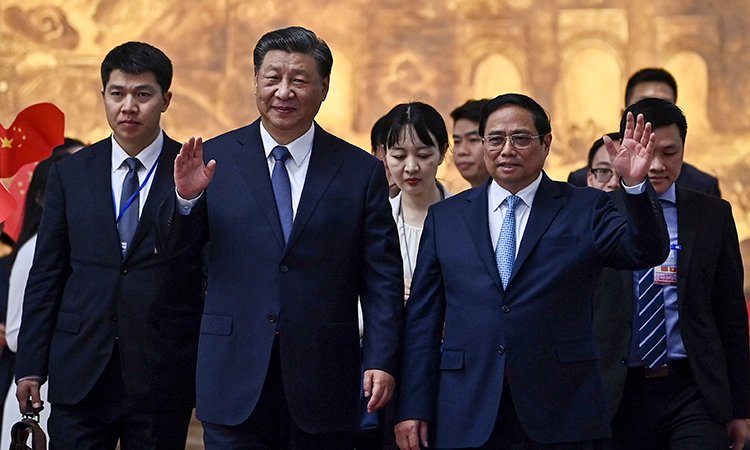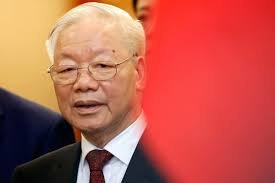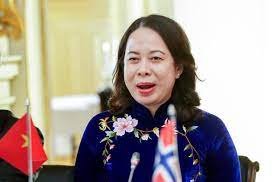BANGKOK, Dec 13: Chinese leader Xi Jinping met with Vietnam’s prime minister and the head of the country’s National Assembly on Wednesday, on the second day of his visit to shore up Beijing’s relationship with Hanoi after the Southeast Asian nation recently elevated its ties with Japan and the United States.
Xi met with Communist Party General Secretary Nguyen Phu Trong on Tuesday, and they announced that China and Vietnam would work toward a “community with a shared future,” in what was seen as a diplomatic concession by Vietnam to Beijing.
Vietnam has resisted using that phrase in the past but wanted to assuage Beijing’s concerns after Vietnam designated both the U.S. and Japan as “comprehensive strategic partners” in recent months, a designation it uses for China. The status is Vietnam’s highest official designation for a diplomatic relationship.
Xi referenced the phrase again Wednesday in a meeting with National Assembly Chairman Vuong Dinh Hue.
“In the next stage, both sides need to strengthen cooperation in various fields, including legislation, to contribute to the building of the community with a shared future,” Xi said.
Nguyen Khac Giang, a visiting fellow at ISEAS-Yusof Ishak Institute in Singapore, said the rhetorical concession from Hanoi “doesn’t mean Vietnam supports China-led political initiatives, but rather (is) a delicate act of hedging, particularly after its upgrade with the U.S. and Japan recently.”
“I think the move is expected given the fact that Xi came to Hanoi in person,” Nguyen said.
Xi also met with Vietnamese Prime Minister Pham Minh Chinh and President Vo Van Thuong on Wednesday and will end his trip after meeting with young Vietnamese and Chinese scholars.
Vietnam and China already have robust ties, but they also have significant points of difference, primarily over territorial claims over islands in the South China Sea.
China has been Vietnam’s largest trading partner for several years, with a bilateral trade turnover of $175.6 billion in 2022. Imports from China, including crucial inputs for Vietnam’s manufacturing sector, make up 67%, according to Vietnam customs data cited by Vietnamese state media. (AP)












